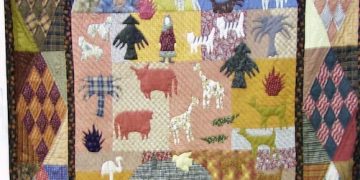Decoding American Humor: A Guide to US Jokes and Sarcasm

Anúncios
Decoding American Humor: A Guide to Understanding Jokes and Sarcasm in US Culture explores the nuances of American humor, offering insights into its origins, key elements like irony and self-deprecation, and how cultural context shapes comedic preferences.
Navigating social situations in a new culture can be tricky, especially when humor is involved. Decoding American Humor: A Guide to Understanding Jokes and Sarcasm in US Culture provides the tools to understand and appreciate what makes Americans laugh.
Anúncios
The Roots of American Humor
American humor is a diverse and evolving landscape, influenced by historical events, cultural shifts, and a melting pot of traditions. Understanding its roots is key to appreciating its modern forms.
Early Influences
From the tall tales of the Wild West to the vaudeville era, early American humor was often characterized by exaggeration, physical comedy, and witty wordplay.
Anúncios
These traditions helped shape the nation’s comedic sensibilities, paving the way for future generations of humorists.
The Impact of Immigration
Waves of immigration throughout American history have enriched its comedic landscape. Different cultures brought their own comedic styles, blending with existing forms to create new and unique expressions of humor.
- Ethnic humor, though sometimes controversial, played a significant role in shaping comedic stereotypes and exploring cultural differences.
- The influence of Jewish humor, with its emphasis on self-deprecation and witty observations, has been particularly profound.
- Immigrant experiences often became fodder for comedy, as humor provided a way to navigate and make sense of a new and sometimes challenging world.

In conclusion, tracing the roots of American humor reveals a complex tapestry of influences, from early folk traditions to the contributions of diverse immigrant communities. This historical perspective is crucial for understanding the evolution and ongoing vibrancy of American comedy.
Key Elements of American Humor
Beyond its historical roots, American humor is defined by several key elements that contribute to its unique style. Understanding these elements can help you navigate the comedic landscape.
Irony and Sarcasm
Irony and sarcasm are staples of American humor, often used to express wit, skepticism, or gentle mockery. Recognizing these elements is crucial for understanding the intended meaning behind a joke.
Learning to distinguish between genuine statements and ironic ones is essential for avoiding misunderstandings and appreciating the humor.
Self-Deprecation
Self-deprecating humor, or the act of poking fun at oneself, is a common way for Americans to build rapport and create a sense of relatability. It’s often seen as a sign of humility and confidence.
- Self-deprecation can be used to diffuse tension in social situations.
- It can also be a way of subtly boasting by highlighting perceived flaws in an exaggerated way.
- However, excessive self-deprecation can be interpreted as insecurity or a lack of confidence.
Mastering the art of self-deprecation requires a delicate balance. Knowing when and how to use it effectively can enhance your social interactions.
Absurdity and Non-Sequiturs
Many forms of American humor embrace the absurd, using illogical situations, unexpected twists, and nonsensical statements to generate laughter. This type of humor often challenges conventional thinking.
Appreciating absurdity requires a willingness to let go of logic and embrace the unexpected. Understanding this element of American humor can open up a new world of comedic possibilities.
Regional Variations in American Comedy
Just as American culture varies across different regions, so too does its humor. Each region boasts its own distinct comedic styles, reflecting local traditions, values, and experiences.
Southern Charm and Wit
Southern humor often relies on storytelling, folksy wisdom, and a gentle, self-effacing charm. It frequently incorporates regional dialects and celebrates the quirks of Southern life.
Understanding the cultural context of Southern humor is key to appreciating its unique appeal. Look for themes of family, community, and tradition.
Northeastern Sarcasm and Irony
Northeastern humor, particularly in cities like New York and Boston, is often characterized by its sharp wit, cynical observations, and fast-paced delivery. Sarcasm and irony are common tools.
- New York humor often reflects the challenges and absurdities of urban life.
- Boston humor can be dry and understated, with a focus on intellectual wit.
- Observational humor, commenting on the everyday experiences of Northeasterners, is also prevalent.
Navigating Northeastern humor requires quick thinking and a tolerance for bluntness. It’s a style best appreciated by those who enjoy a dose of cynicism with their laughter.
West Coast Satire and Absurdity
West Coast humor, particularly in California, often embraces satire, absurdity, and a laid-back sensibility. It frequently targets celebrity culture, political trends, and the quirks of California life.

Decoding West Coast humor requires an awareness of current trends and a willingness to embrace the unconventional. It’s a style that often pushes boundaries and challenges assumptions.
Navigating Sensitive Topics with Humor
Humor can be a powerful tool for addressing sensitive topics, but it can also be easily misused. Understanding the nuances of appropriate comedic boundaries is essential for avoiding offense and building positive relationships.
Political Correctness and Comedy
The concept of political correctness, or the avoidance of language and actions that could offend marginalized groups, has had a significant impact on comedy. While some see it as stifling creativity, others view it as a necessary step towards a more inclusive and respectful society.
Navigating the line between humor and offense requires careful consideration of intent, audience, and cultural context.
Stereotypes and Humor
Stereotypes, or oversimplified generalizations about groups of people, are often used in comedy, but their use can be problematic. While stereotypes can be funny when used to subvert expectations or highlight shared human experiences, they can also reinforce harmful prejudices and perpetuate discrimination.
- Consider the potential impact of stereotypical jokes on marginalized groups.
- Be mindful of the power dynamics at play and avoid punching down.
- Strive to use humor that is inclusive and respectful of all people.
Using stereotypes responsibly in comedy requires a deep understanding of their potential impact. It’s important to prioritize empathy and awareness when crafting jokes that address sensitive issues.
Self-Awareness and Empathy
The key to navigating sensitive topics with humor is self-awareness and empathy. Understanding your own biases and privileges, and being mindful of the experiences of others, can help you craft jokes that are both funny and respectful.
Remember that humor should be used to connect people, not to divide them. By prioritizing kindness and understanding, you can use comedy to promote dialogue and build bridges across cultural differences.
Appreciating American Comedians
American comedy has been shaped by countless talented comedians, each with their own unique style and perspective. Exploring their work can provide valuable insights into the evolution and diversity of American humor.
Stand-Up Legends
From the witty observations of Jerry Seinfeld to the edgy social commentary of George Carlin, stand-up comedians have played a pivotal role in shaping American comedic sensibilities. Their routines often reflect the anxieties, aspirations, and absurdities of American life.
Exploring the work of iconic stand-up comedians can offer a window into the American psyche.
Improvisational Geniuses
Improvisational comedy, or improv, relies on spontaneity, collaboration, and quick thinking. Improv groups like The Second City and Upright Citizens Brigade have produced some of the most innovative and influential comedians in the country.
- Improv encourages creativity and risk-taking.
- It fosters a sense of community and collaboration.
- Many successful comedians got their start in improv.
Learning about the world of improv can inspire you to think on your feet and embrace the unexpected.
The Power of Sketch Comedy
Sketch comedy, with its short, self-contained scenes, offers a platform for exploring a wide range of comedic styles and ideas. Shows like Saturday Night Live and Key & Peele have used sketch comedy to satirize politics, pop culture, and everyday life.
Sketch comedy often pushes boundaries and challenges conventional thinking. It’s a powerful tool for social commentary and cultural critique. Studying the work of influential sketch comedy shows can provide valuable insights into the art of comedic storytelling.
Dos and Don’ts of Using Humor in the US
While humor can be a valuable asset in social and professional settings, it’s important to use it wisely. Understanding the dos and don’ts of American humor can help you avoid awkward situations and build stronger relationships.
Do: Be Observant
Pay attention to the comedic styles and preferences of those around you. Observe how Americans use humor in different contexts and try to adapt your own style accordingly.
Being observant is the first step towards becoming a more adept and appreciated humorist.
Don’t: Rely on Offensive Jokes
Avoid using jokes that are based on stereotypes, prejudice, or discrimination. Be mindful of the potential impact of your words on others, and prioritize kindness and respect.
- Steer clear of jokes that target marginalized groups.
- Avoid making light of serious topics like violence or tragedy.
- Prioritize humor that is inclusive and uplifting.
Relying on offensive jokes can damage your reputation and alienate others.
Do: Use Self-Deprecation Wisely
Self-deprecating humor can be a great way to build rapport, but it’s important to use it in moderation. Avoid dwelling on your perceived flaws or seeking validation from others.
The key is to strike a balance between self-awareness and self-confidence.
| Key Element | Brief Description |
|---|---|
| 😂 Irony | Uses words to convey a meaning opposite to their literal one. |
| 🤣 Sarcasm | A sharp, often ironic remark intended to mock or convey contempt. |
| 🤪 Self-Deprecation | Humorously belittling or making fun of oneself. |
| 🤯 Absurdity | Uses illogical situations and unexpected twists for humor. |
Frequently Asked Questions (FAQ)
▼
Sarcasm in American humor serves as a tool for wit and social commentary, often used to subtly critique societal norms or express skepticism in a lighthearted manner.
▼
While generally appreciated for its relatability, excessive self-deprecation can be misconstrued as insecurity. It’s crucial to balance humility with confidence for positive reception.
▼
Political correctness has prompted comedians to be more mindful of potentially offensive content, leading to a shift towards inclusive humor that avoids harmful stereotypes and prejudice.
▼
Regional variations shape humor through distinct cultural and social contexts as Southern wit differs from the sarcasm prevalent in the Northeast, reflecting unique values and experiences.
▼
To enhance your appreciation of American comedy, immerse yourself in its diverse forms, from stand-up and improv to sketch shows. Also, be mindful of cultural nuances and historical context for a richer experience.
Conclusion
Decoding American Humor: A Guide to Understanding Jokes and Sarcasm in US Culture requires an appreciation for its historical roots, key elements, regional variations, and sensitivities. Armed with this knowledge, you can navigate the American comedic landscape with greater confidence and enjoy its unique and often hilarious perspective on life.





